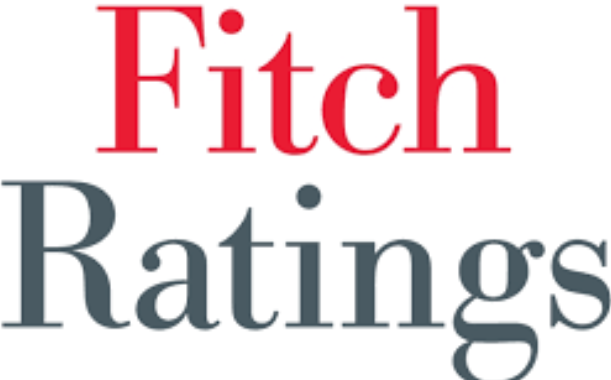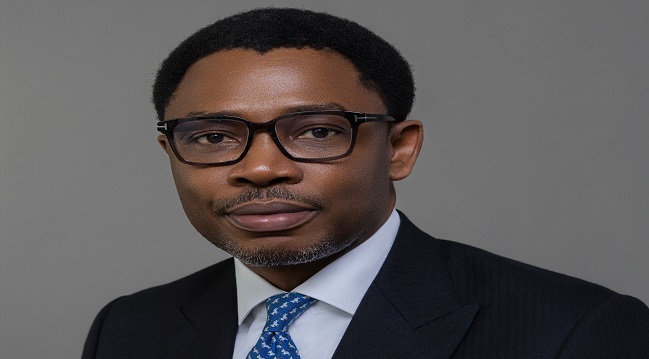E-Financial
Ernst & Young Urges Insurers to Digitizing Core Processes, Embrace Flexible Sourcing Models

Ernst & Young Global Limited has called on insurers to continue to address their technology by digitizing core processes, migrating to the cloud and embracing flexible sourcing models to remain in business.

In its 2022 Global Insurance Outlook, which highlights trends shaping the Insurance Industry, Ernst & Young said after the dramatic developments of the last few years, insurers have shown they can undertake large-scale change at a faster pace than many industry veterans thought possible and can deal with unexpected developments.
“The current landscape is also notable for its fragmentation; convergence and intense competition, including from a mix of non-traditional players; and widespread collaboration.
“Carriers will look to partner with or acquire the most promising InsurTechs, and banks and asset managers will offer more protection products and seek to differentiate on holistic financial wellness value propositions, forcing insurers to choose between collaboration and competition, “it said.
The report also stated that the insurance industry must seek to lead with purpose and live up to its highest aspirations, “particularly in the wake of the COVID-19 pandemic.
“Insurers had to be there for customers and undertook large-scale change quickly to make sure they could serve people in need – and they must continue to do so, particularly if they are to help the world prepare for increasing climate risk.”
For Rotimi Okpaise, EY Insurance Leader for West Africa, “our Global Market report aligns with expectations in West Africa. Ecosystems (Banks, Telecoms, Insuretecs) are gradually developing in our region, aimed at expanding the Insurance customer base and increase our low insurance penetration levels.
“Efforts are being made to engage customers better, know their needs, segment the customer base and, develop, market, and sell affordable relevant products and in the process, increase the sectors Revenue base. There are data-sharing regulatory hurdles to scale, but these are broadly deemed surmountable.”
On COVID-19 and its multi-faceted disruptions, Okpaise said: “The Covid 19 triggered new Workforce needs. The Industry adapted reasonably well through investing in technology and adjusting terms of employment.
“Needs are however continuously changing and the dearth of skills across many industries has led to a war-on-talent and more flexible employment terms.”
The Report further noted that the rise of open finance, along with the ecosystems of financial solutions that it enables, has emerged as one of the defining financial services trends of the 2020s, primarily in response to changing customer needs and expectations.
“On the promise of a human-centered, tech-enabled enterprise, it stated, “Not that long ago, the conventional wisdom in insurance held that workers would lose their jobs as insurers adopted more technology and automated more processes.”
Climate change and sustainability, the report stated, have re-emerged atop board and C-suite agendas as the direct impacts of the COVID-19 pandemic have receded. Previous discussions about sustainability were largely theoretical and centered on making public pledges of support.
E-Financial
EFCC Seeks Suspension, Prosecution of Banks for Aiding N162Bn Crypto Scams

Economic and Financial Crimes Commission (EFCC) has called for the suspension and prosecution of deposit banks, Fintechs and microfinance banks aiding and abetting fraudsters in defrauding Nigerians through fraudulent schemes.

Wilson Uwujaren, director of Public Affairs of the Commission, made the call in Abuja, on the sidelines of a recent news briefing about negligence and compromise of the financial institutions that cost victims billions of naira.
Uwujaren said that the commission uncovered widespread compromise within Nigeria’s financial system, involving an N18.7 billion investment scam and fraudulent transactions of N162 billion in cryptocurrencies.
He accused one new-generation bank, six Fintechs and some microfinance banks of aiding and abetting fraudsters in laundering their proceeds.
“It is worrisome that investigations by the commission showed that cryptocurrency transactions to the tune of N162 billion passed through a new generation bank without any due diligence.
“Investigations also showed that a single customer maintained 960 accounts in the new generation bank, and all the accounts were used for fraudulent purposes.”
He said that the financial institutions clearly compromised banking procedures and allowed the fraudsters to safely change their ill-gotten gains into digital assets and move them to safe destinations.
“The Commission is calling on regulatory bodies to bring financial institutions to compulsory compliance with regulations in the areas of Know Your Customers (KYC), Customer Due Diligence (CDD), Suspicious Transaction Reports (STRs) and others.
“Deposit money banks, Fintechs and microfinance banks found to be aiding and abetting fraudsters should be suspended and referred to the EFCC for thorough investigation and possible prosecution,” he said.
He said that the scams of N18.7 billion were in two categories, adding that the first was a syndicate of fraudsters that employed an airline discount scheme to lure their victims.
The second one, according to him, involved a company named Fred and Farid Investment Limited, simply called FF Investment, which lured Nigerians into a bogus investment arrangement.
“The modality of the fraudsters in the airline scam involved a string of carefully devised airline discount information that any unsuspecting foreign traveller will fall for.
“What they do is to advertise a discount system in the purchase of flight tickets of a particular foreign carrier.
“The payment module is designed in such a way that their victims would be convinced that the payment is actually made into the account of the airline.
“No sooner is the payment made than the passenger’s entire funds in his bank account are emptied.”
He said that over 700 victims had fallen into the trap of fraudsters through the scheme with a total loss of N651.1 million.
Uwujaren said that the commission succeeded in recovering and returning N33.63 million to victims of the scam and cautioned Nigerians to be more vigilant.
The second scheme, according to him, involved a company named Fred and Farid Investment Limited, simply called FF Investment, which lured Nigerians into bogus investment arrangements.
“More than 200,000 victims have been defrauded in this regard. A total sum of N18.1 billion was raked in through nine companies offering diverse investment packages.”
Uwujaren said that foreign nationals are behind the schemes, with three Nigerian accomplices who have been arrested and charged in court.
E-Financial
Fitch Downgrades Afreximbank to ‘BB+’/Stable Amid Concerns Over Ghana’s Debt

Fitch Ratings has downgraded African Export-Import Bank’s (Afreximbank) Long-Term Issuer Default Rating (IDR) to ‘BB+’ from ‘BBB-’.

Fitch also downgraded Afreximbank’s Short-Term IDR to ‘B’, from ‘F3’, and the long-term ratings on the bank’s global medium-term note programme and debt issuance to ‘BB+’, from ‘BBB-’.
The global rating institution subsequently withdrew the bank’s ratings.
In a statement posted on its website, Fitch explained that the downgrade “reflects our revision of Afreximbank’s policy importance risk to ‘medium’ from ‘low’ following the announcement of an agreement on Ghana’s debt to Afreximbank in the context of Ghana’s broader restructuring”.
It said, “This has led us to revise our assessment of Afreximbank’s business profile to ‘high risk’ from ‘medium risk’, which resulted in an overall business environment notching of -3 (-2 previously).”
Essentially, a BB+ /Stable rating from Fitch is considered non-investment grade, also known as high-yield or “junk”.
The statement added, “Fitch has chosen to withdraw the ratings for commercial reasons. Fitch will no longer provide ratings or analytical coverage for the bank.”
In arriving at its decision, Fitch stated, “Afreximbank and Ghana announced in December 2025 that they had reached an agreement in principle with respect to Afreximbank’s $750 million sovereign loan to Ghana.
“The IMF stated that the deal is in line with the comparability of treatment under Ghana’s official creditor committee. We view this as evidence that Afreximbank did not benefit from its preferred creditor status (PCS).”
It said, “While we had not previously given any uplift in our solvency assessment for PCS, the de-facto preferential treatment in a broader sense that Afreximbank, along with most other multilateral development banks, benefit from was previously factored into our assessment of the bank’s policy importance.
“The bank’s inclusion in Ghana’s restructuring underlines its weakening policy importance, in our view.”
The rating institution also said, “Our latest assessment of Afreximbank’s ‘high’ business profile risk underpins the ‘high risk’ quality of governance assessment, and ‘high’ strategy risk.
“The ‘high risk’ business environment assessment reflects the bank’s exposure to a ‘high risk’ operating environment with weak credit quality, low income per capita and high political risk in the countries of operation.”
It explained that the ratings were driven by the bank’s Standalone Credit Profile (SCP) of ‘bb+’, reflecting the lower of the solvency (bbb+) and liquidity (a) assessments and its ‘high risk’ business environment.
The statement added that the solvency assessment balanced the bank’s ‘strong’ capitalisation and ‘moderate’ risk profile.
Fitch stated, “Afreximbank’s ‘bbb+’ solvency assessment reflects both ‘strong’ capitalisation and ‘moderate’ solvency risks. Our assessment of capitalisation is underpinned by a ‘moderate’ usable capital to risk-weighted assets (21 per cent at end-2024) ratio, a ‘strong’ equity to assets and guarantees ratio (19 per cent) and ‘excellent’ internal capital generation.
“The ‘moderate’ solvency risks assessment reflects ‘high’ credit risk, ‘weak’ risk management policies, ‘low’ concentration risk and ‘very low’ equity risk.
“Afreximbank’s ‘a’ liquidity assessment reflects the ‘strong’ quality of treasury assets, measured by the share of treasury assets rated ‘AA-’ to ‘AAA’ (50 per cent at end-2024 and we expect it to remain above the ‘strong’ threshold of 40 per cent), and a ‘moderate’ liquidity buffer (defined as liquid assets-to-short-term debt, at 95 per cent at end-2024).
“The bank’s liquidity profile is enhanced by its access to capital markets and diversified funding sources, including credit lines ($2.1 billion, of which $0.6 billion was committed at end-2024) and collateral deposits. The short duration of the loan portfolio also contains liquidity needs.”
Fitch also stated that it “assesses shareholders’ capacity to support Afreximbank at ‘bb-’, based on the average rating of key shareholders (ARKS) accounting for more than 50 per cent of the bank’s capital.
“The sovereign upgrades of Egypt and Nigeria, Afreximbank’s two largest shareholders, in April 2025 improved the ARKS to ‘B+’ from ‘B’.
“Credit risk mitigants on callable capital (covering 40 per cent of $4.3 billion) enhance the support capacity by one notch to ‘bb-’.
“The support assessment also reflects the ‘strong’ propensity of shareholders to support the bank, which has been consistently demonstrated by ongoing capital injections and dividend reinvestments.”
E-Financial
FBNQuest Merchant Bank Rebrands as Quest Merchant Bank

FBNQuest Merchant Bank Limited has completed a change of name and will now operate as Quest Merchant Bank Limited, following the receipt of all required corporate and regulatory approvals.

The name change does not affect the Bank’s legal or going-concern status, management, or the nature of its business. Quest Merchant Bank Limited remains a duly licensed merchant bank, regulated by the Central Bank of Nigeria (CBN) and the Securities and Exchange Commission (SEC), and continues to deliver its full suite of merchant banking, advisory, and capital markets services to clients.
Commenting on the development, the Ag. Managing Director/CEO, Afolabi Olorode, stated: “This name change represents a pivotal milestone in the rich history of the Bank and a deliberate strategic repositioning that reflects our resilience, strong track record, and long-term growth ambitions. While our name has evolved, our commitment to our clients, stakeholders, and regulators remains unwavering.”
As part of the transition, the Bank is updating its branding, communications, and digital platforms to reflect the new name. During this period, some legacy references may remain visible across select touchpoints as updates are progressively completed.
All existing contracts, client relationships, and obligations of the Bank remain valid, binding, and fully enforceable following the name change.

 Telecom3 days ago
Telecom3 days agoPolice Bust ₦7.7bn Telecom Hack Gang, Seize 400 Laptops in Massive Fraud Swoop

 General News3 days ago
General News3 days agoNCC Slaps ₦250,000 Fee on Trial Licences to Spur Telecom Innovation

 General News3 days ago
General News3 days agoNaira Smashes Through ₦1,400 Barrier in Official FX Rally

 News3 days ago
News3 days agoFirms Commit to Boost African Robotics Market

 E-Financial3 days ago
E-Financial3 days agoUBA launches instant digital platform for seamless account opening across Africa, diaspora

 E-Financial3 days ago
E-Financial3 days agoKuda MFB Secures National Microfinance Banking Licence, Sets Stage for Nationwide Growth

 Telecom3 days ago
Telecom3 days agoAmazon Axes 16,000 Jobs Worldwide in Major Restructuring Push

 General News3 days ago
General News3 days agoKaspersky Reveals How Digitalisation is Influencing Family Life















